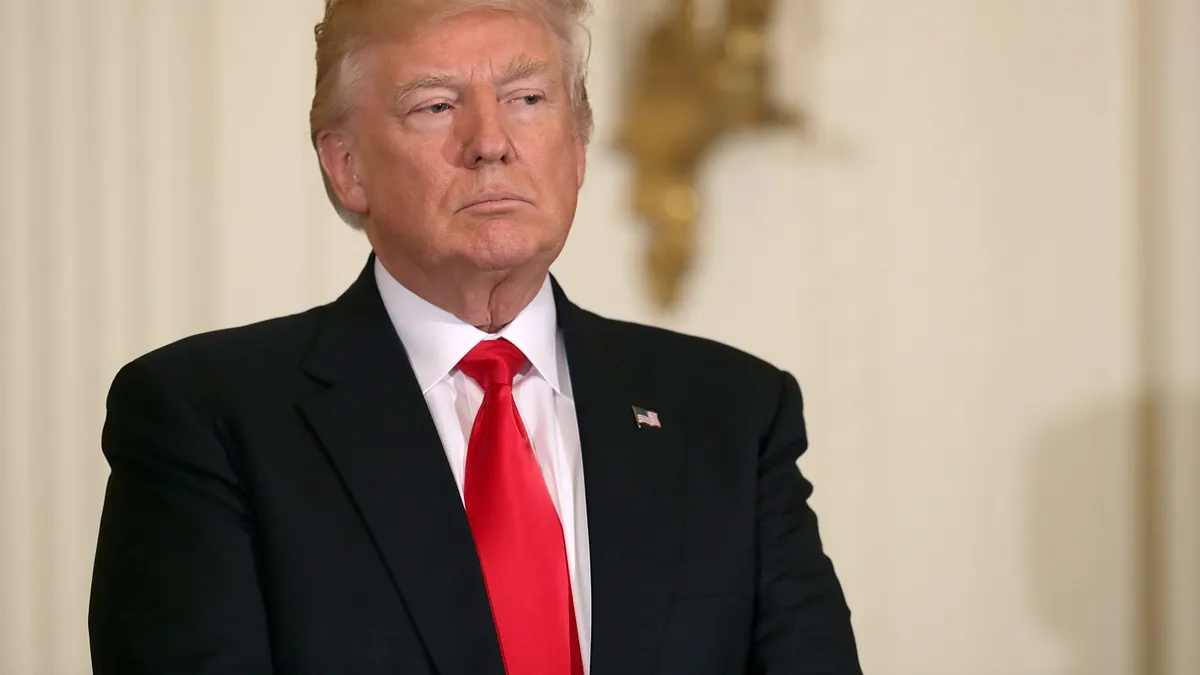President Donald Trump declared the outbreak of the novel coronavirus a national emergency in an address on Friday, giving providers access to additional federal funds, resources and providing more flexibility by easing requirements to treat a growing number of Americans.
In a joint letter sent to the White House on Thursday, the nation's largest medical organizations urged the president to take this step "to ensure that health care services and sufficient health care items are available to respond to the COVID-19 outbreak," the leaders of the American Hospital Association, American Medical Association and the American Nurses Association wrote.
The declaration opens up to $50 billion additional funds for states as Trump said "now we're in a different phase."
The administration has been under fire for a disjointed and slow response to the pandemic and Wall Street has been in free fall all week.
This action will remove as many constraints as possible for providers and states and local agencies, said Anthony Fauci, director of the National Institute of Allergy and Infectious Diseases. Although he cautioned there is still a long way to go, he added the action will help end the outbreak sooner.
In addition to the declaration, the administration urged every state to set up emergency operation centers and asked every hospital to activate its emergency preparedness plans.
The declaration would waive laws or requirements to allow providers to quickly respond to the disease. In particular, it waives the three-day hospital stay requirement prior to being moved to a nursing home. It also waives restrictions on where hospitals can care for patients. Further, it eases licensure requirements, allowing physicians to provide care in other states, including for telehealth.
With execs from BD, Quest, Roche and Thermo Fisher on hand at the White House, the administration also announced a public-private partnership aimed at fast-tracking FDA emergency use authorizations, highlighting Friday's EUA to a SARS-CoV-2 diagnostic from Roche, the first commercial test to achieve the status. At the time of the announcement, Roche said it's committed to "going to the limits" of its production capacity to churn out millions of tests per month.
The administration is also looking to leverage the scale of LabCorp and Quest, diagnostics giants that both in recent days have made tests for the coronavirus available.
"We are up and running with a test in a number of our facilities. As the president mentioned, we now have capabilities from Roche that we will bring into our facilities this weekend and I know my colleague at LabCorp will be doing the same," said Quest Diagnostics CEO Steve Rusckowski at the event.
Rusckowski added that the "capacity available to the American public to support this [Roche] action with consumers will be considerably increased in the next few weeks."
Trump also announced that the FDA's goal is to "hopefully authorize" within 24 hours an application from Thermo Fisher.
He promised "additionally 1.4 million tests on board next week and 5 million within a month."
Thomas Polen, CEO of BD, announced at the White House event that his company is "ramping up" its manufacturing capacity to "ensure that the right collection devices and testing equipment are ready to address this issue."
Diagnostics stocks closed Friday on a higher note, with BD and Quest each up 7%, LabCorp up 10%, and Roche up 13%.
Greg Slabodkin contributed reporting.












